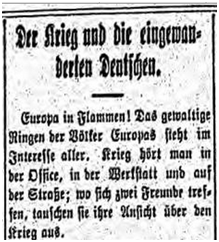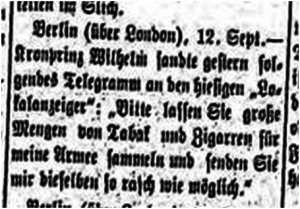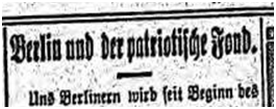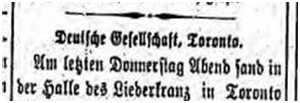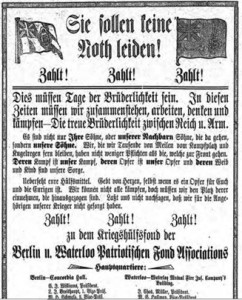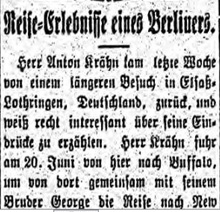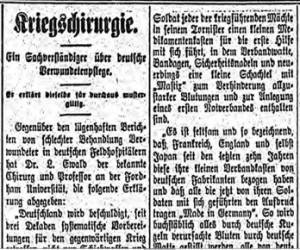In October, 1914, another firsthand account of the situation in Germany was published by the Berliner Journal; this time the account was provided by a local woman who travelled to Germany with her American friend. Surprised by the outbreak of the war, the two made their way to Berlin, where they found many Americans at the embassy. While helping out at the embassy, these women made contact with the German government and many private persons and only had positive things to say about their behavior. According to this account, while North Americans were getting excited and afraid of increasing prices for groceries, the Germans kept calm. The two women were not able to note any increasing prices at all. The Germans supported and helped the Americans very much and at one point, the Canadian woman even helped catch a Servian spy.
This account differs immensely from much of what was printed in the local English papers about the situation in Germany, and again shows the unique perspective the Berliner Journal was trying to provide.
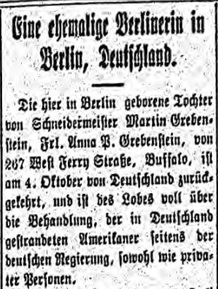
(“Eine ehemalige Berlinerin in Berlin, Deutschland”, Berliner Journal, 21 October 1914)

